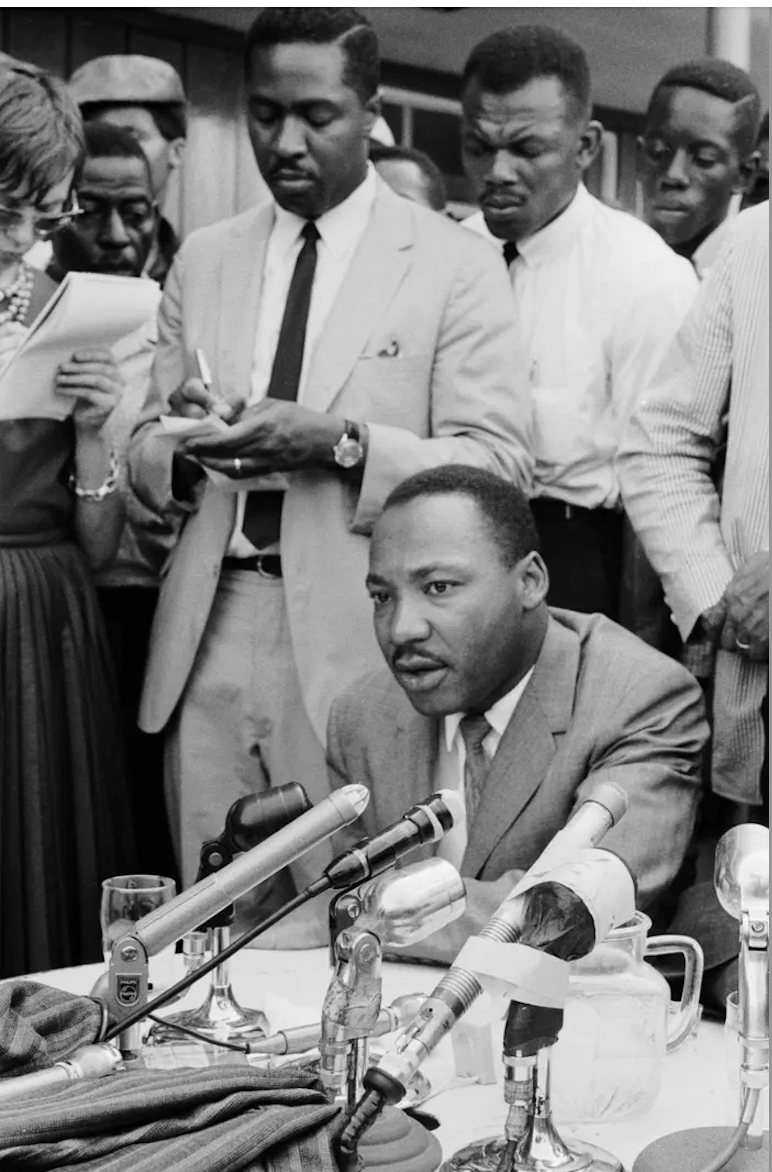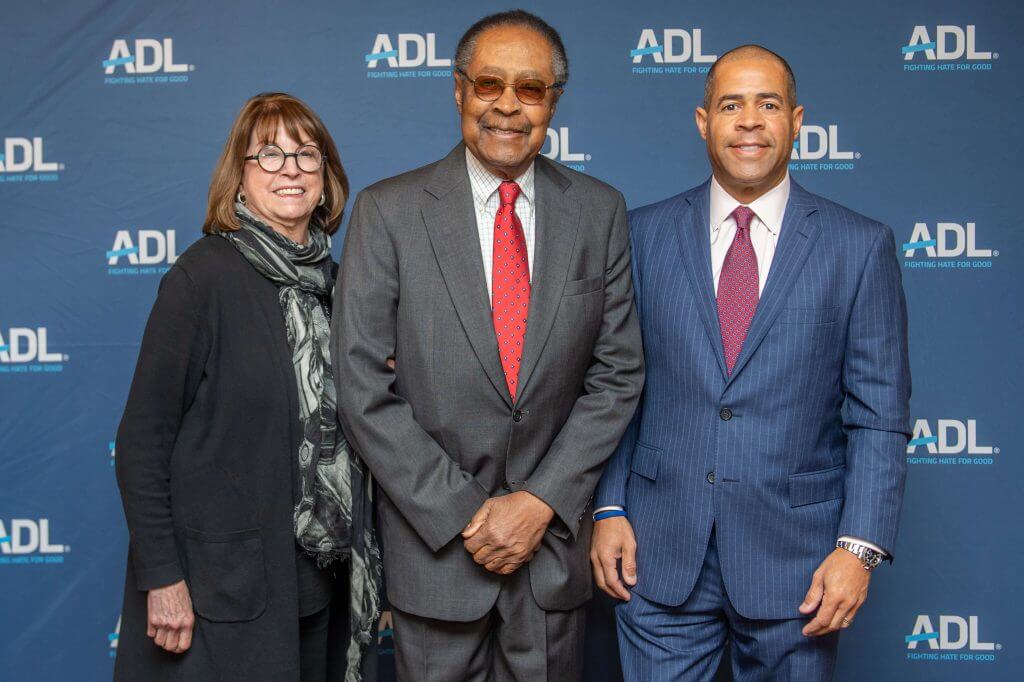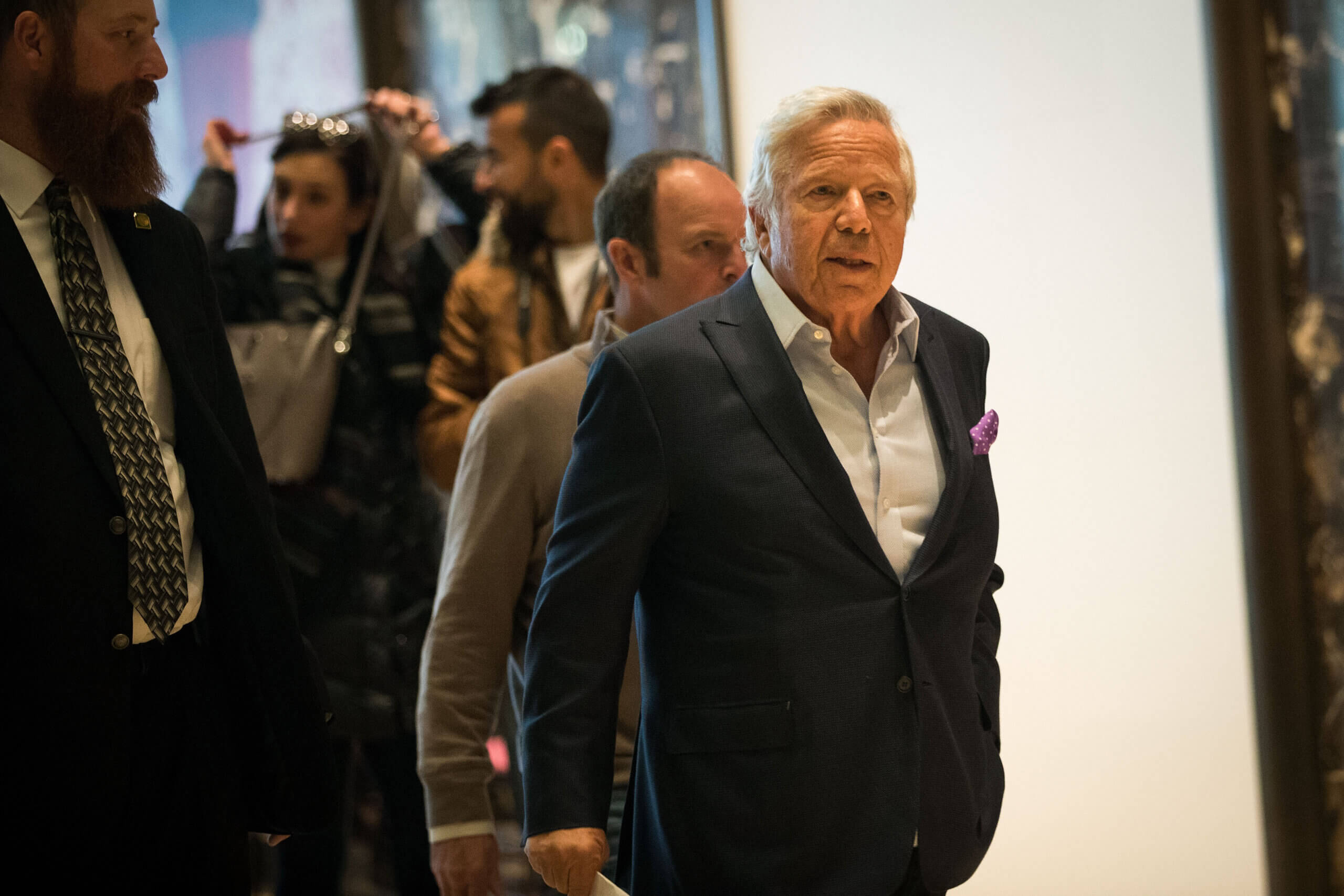‘Silence is not an option’: Super Bowl ad on antisemitism to feature MLK speechwriter
Clarence B. Jones has spent years trying to maintain relationships between the Black and Jewish communities

Clarence B. Jones, a speechwriter and attorney for Martin Luther King Jr., in an advertisement by Robert Kraft’s Foundation to Combat Anti-Semitism slated to appear during the Super Bowl on Sunday. Courtesy of Foundation to Combat Anti-Semitism
When Clarence B. Jones joined Martin Luther King’s team as a speechwriter and lawyer in 1960, he knew that the Civil Rights Movement needed white allies. And so, at demonstration after demonstration, he would seek out the white attendees and ask them why they were there.
Many told him they were Jewish, and there to honor their grandparents who had died in the Holocaust.
“I went back and I told Martin,” Jones, 93, recalled in a Friday interview. “He said, ‘Are you kidding?’”
The outsize participation of Jews among white supporters of civil rights during that period made a profound impact on Jones. Now one of the last living members of King’s inner circle, Jones has devoted much of his energy in recent years to maintaining the Black-Jewish alliance. And on Sunday, he’ll be given an unprecedented stage to spread his message against antisemitism and other forms of hate when he stars in a Super Bowl advertisement that will be broadcast to an estimated audience of 100 million people.
“They tell me it’s the largest watching audience in television,” Jones said.
That platform will be provided by Robert Kraft, the billionaire owner of the New England Patriots whose Foundation to Combat Anti-Semitism purchased the coveted advertising slot as part of a campaign of public service announcements condemning antisemitism launched last spring.
“With this ad, we hope to continue to spread Dr. Martin Luther King Jr.’s message of unity and equality at a time in which the country needs it most,” Kraft said in a statement.
A storied career
Jones spent years working with King, including by helping the civil rights icon draft his famous “I Have a Dream” speech. By 1968, when King was assassinated, Jones was dividing his time between advising King and working in finance, after becoming the first Black investment banking partner on Wall Street at Cogan, Berlind, Weill & Levitt.
He would later serve as a negotiator during the 1971 riot at Attica prison, and eventually came to own a share in the New York Amsterdam News, a Black newspaper in New York City. He married Charlotte Schiff, a leader of the Women’s Liberation Movement and the mother of Richard Schiff, the Jewish actor known for playing Toby Ziegler on The West Wing.

Richard Schiff recalled attending Black Panther Party meetings as a child. “I stood out a little bit,” he quipped to the Independent in 2007.
(Jones is currently married to Lin Walters.)
In recent years, Jones has been outspoken about the role of American Jewish leaders in championing the Civil Rights Movement. “It was the relationship between the Black and Jewish communities during the Civil Rights Movement” that enabled “the Civil Rights Bill and Voting Rights Act of 1965,” Jones said.
Since 2020, Jones has been chair of Spill the Honey, a foundation meant to honor the legacies of both King and Elie Wiesel, the Holocaust survivor and author, with a focus on funding education around the Holocaust and slavery.
“I’m glad that I have lived long enough to partner with Robert K. Kraft and FCAS to continue to spread the message to the widest possible audience,” Jones said in a statement released by Spill the Honey, which is also promoting the Super Bowl ad.
The script of the advertisement itself remains a closely guarded secret. The Canadian Jewish News detailed the filming of another advertisement reportedly planned to be aired during the Super Bowl, about a Massachusetts synagogue dealing with a bomb threat, but the Kraft foundation has only promoted news of the ad featuring Jones.
Views on Israel, racial justice
Jones has also been a staunch supporter of Israel, and expressed some contrarian views on contemporary racial justice advocacy. In a 2014 speech at the Israeli consulate in New York City, Jones defended Israel from claims that it was “racist” or “an apartheid state.”

“One must seek to understand the mindset of the current generation of Israelis to protect themselves from suicide bombers and armed terrorists attacks,” he said. “They are a generation whose parents and grandparents experienced the horrors of the Nazi Holocaust. When they say ‘Never Again!’ they mean never again.”
Reached by phone on Friday, Jones connected his support for Israel in its current war against Hamas to his feelings of loyalty to the Jewish community.
“We understand that there are profound differences and fissures that have been opened as a result of Israel exercising its right to survival,” he said.
“To my young Black friends who know anything about the legacy of Martin Luther King Jr., I remind them that there’s no way in hell we would have been able to transform this country without the support of the Jewish community,” Jones added. “That’s a historic fact — now how you want to take that fact and translate it to the current conflict I leave to others.”
Kraft’s work with Black leaders
Kraft began running PSAs about antisemitism two years ago, when the Foundation to Combat Anti-Semitism, which he created in 2019, began running a number of advertisements during national football games. The foundation launched a more ambitious public campaign last March, when Kraft pledged $25 million to produce and air a series of vignettes about American Jews facing antisemitism on both television and social media, with the goal of raising awareness about antisemitism.
The campaign has continued to run under the banner of #StandUpToJewishHate.
Kraft has also been active in advancing racial justice causes. He co-founded the Reform Alliance, a criminal justice reform group, three years ago with the rapper Meek Mill after visiting him in jail. The two have since appeared together at various events, including at an NAACP conference where they discussed the importance of the Black-Jewish alliance, and at the March for the Living in Poland last year.

“I know in the case of the Jewish people, we can’t solve this problem on our own, we need everybody working with us,” Kraft said at the conference. “People are trying to put boulders between the Black community and the Jewish community, and we’ve always been uniquely tied together.”
Jones said that Kraft’s work with other communities was part of what motivated him to appear in the Super Bowl advertisement. “One of the misconceptions the public has is they think Robert Kraft is only concerned with antisemitism,” Jones said. “That’s not so.”
Asked what Jews could do to help Blacks today, Jones said they should object if they hear anyone make racist comments. Similarly, he said, he hopes his Super Bowl ad will help encourage Americans to speak out against hate whenever they hear it expressed, noting that his message is intended to inspire others to combat both antisemitism and other forms of discrimination.
“One of the worst things that can happen in the presence of antisemitic hate, LGBTQ hate, rage against Hispanics and Blacks, is when you just stand by and do nothing,” Jones said. “Your silence becomes acquiescence, and silence is not an option.”















